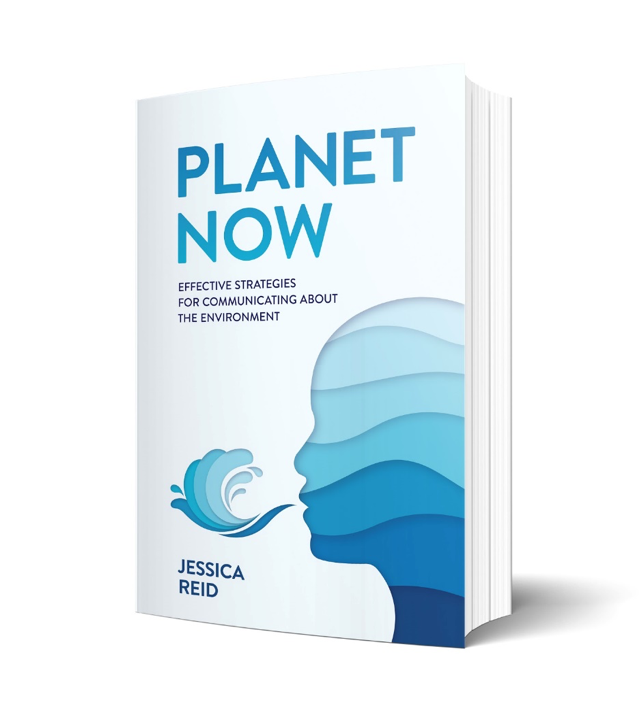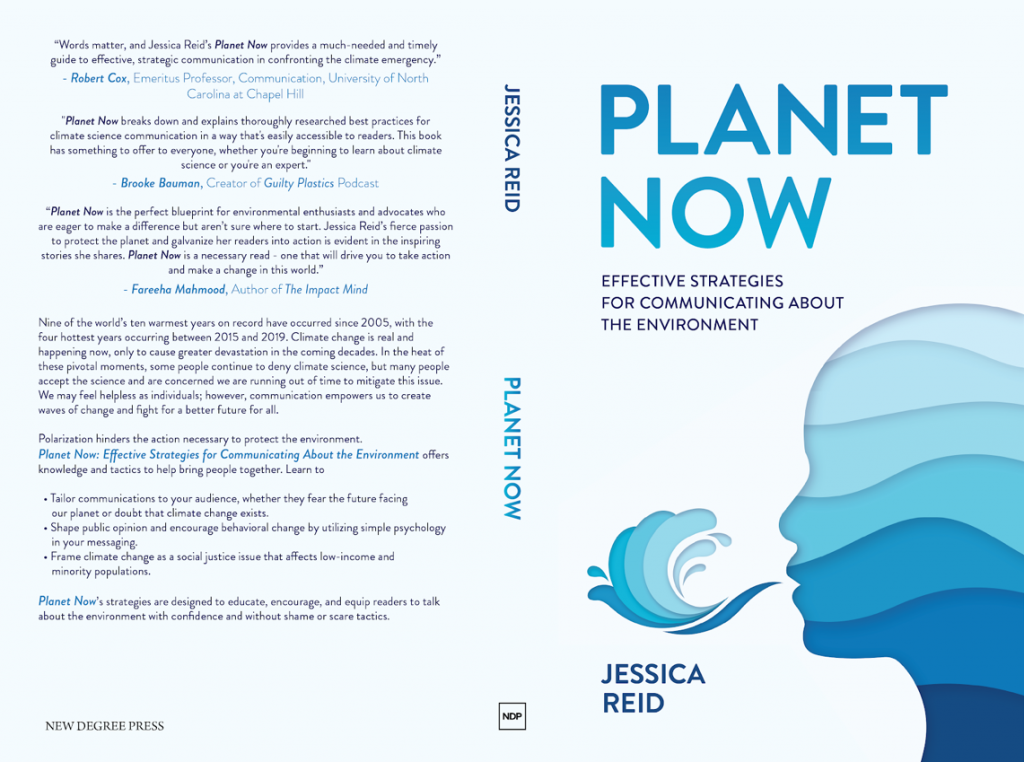By Jessica Reid
Jessica Reid is a junior at UNC-Chapel Hill majoring in environmental studies and pursuing minors in public policy and media and journalism. She has assured admission for the Environment and Science Communication program within the Environment, Ecology and Energy Program and the Hussman School of Journalism and Media, through which she plans to earn a master’s degree in media and communication. She has been a leader in a variety of environmental organizations at UNC.
Combining My Love of Nature with a Passion for Writing
Growing up in rapidly-expanding Apex, North Carolina, I saw clear-cutting and felt concerned about how people are negatively impacting the environment. Yet I realized humans are harming the environment at a scale much larger than in my hometown. Climate change is a serious current and future threat to our society, and individuals can often feel helpless to make any significant difference.
In high school, I learned about biologist Rachel Carson, who used writing to draw attention to the terrible effects of pollution in the mid-twentieth century; most notably, her novel Silent Spring led to environmental action such as the establishment of the Environmental Protection Agency and Earth Day. Carson inspired my interest in advocating for environmental change through writing.
A bookworm during my childhood, I’ve long dreamed of writing and publishing a book. But I never thought that was something I could do in college. In summer 2019, I received a message on LinkedIn from Georgetown business professor Eric Koester, who leads a book creators program for first-time authors around the country. He encouraged me to consider joining his program and take a chance at writing a book. I decided to explore how to strategically communicate about the environment to overcome challenges like political polarization and misinformation in the media in order to make changes to protect the environment.
Taking on the Challenge of Writing a Book
In fall 2019, I started researching my topic. I spoke with many UNC professors and students who have been successful environmental communicators, and I highlight their expertise in the book. I worked alongside a developmental editor and submitted my first draft manuscript in February 2020.
Then came March. The pandemic hit and society started to spiral at the same time that I began the revisions process and simultaneously had to launch my campaign to raise $4,000 to publish with New Degree Press. It was a challenging time to fundraise, but with the support of my peers and network, along with a grant from Innovate Carolina’s Student Venture Fund, I was able to raise enough money to publish the book.
Over the next few months, I created my cover and finalized the content of my book, working with a revisions editor, copyeditor, and designers. I also added a chapter on the lessons we can apply from the pandemic to climate change.
I am excited to finally be publishing Planet Now: Effective Strategies for Communicating about the Environment this September. The book discusses reaching different audiences from people experiencing eco-anxiety to those who are climate skeptics. It shares psychology and typology strategies for helping information resonate with people. Planet Now also explains the best ways to frame climate change, emphasizing that it is a social justice issue that is urgent but also in our control.
I am so thankful for the support I have received from students and faculty at UNC. I have learned more than I could have imagined, and I hope the stories and strategies in Planet Now educate, encourage, and empower readers to advocate for a more sustainable planet.
You can order Planet Now: Effective Strategies for Communicating about the Environment through this link. The paperback book is $15.99 and the e–book is $0.99 for the month of September. It will be available through libraries, bookstores, and other distribution channels as well in the coming weeks. Half of the profits will go to organizations that support a sustainable future.



